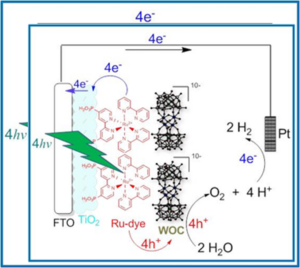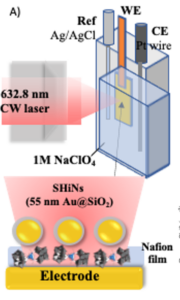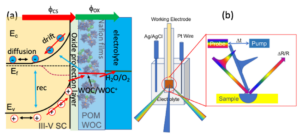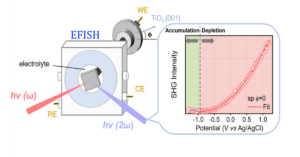Direct conversion of solar energy into clean fuel is one of the most important scientific challenges in solar energy conversion. In this project, Professors Craig Hill, Tianquan Lian and Damaladdin Musaev at Emory University are developing robust and carbon-free nano-scaled assemblies that are capable of converting solar energy into fuel by splitting water. The overall thrust of current projects is to advance in-depth understanding of key factors that impact the efficiency of photoanodes composed of semiconductor electrodes and polyoxometalate (POM) water oxidation catalysts (WOCs) by elucidating the roles of the microenvironments on catalyst stability and performance.
For this project, the Lian group
a) develops in situ Shell-isolated nanoparticle enhanced Raman spectroscopy to probe the microenvironment of POM WOCs immobilized on electrode and photoelectrodes, and
b) apply in situ transient reflectance spectroscopy to study the effect of catalyst microenvironment on photoinduced hole transfer kinetics at photoanodes/catalyst/electrolyte interface.




